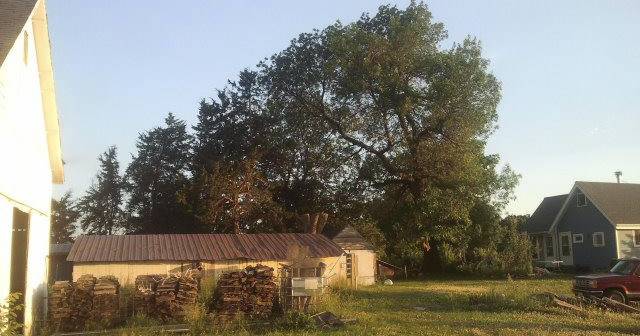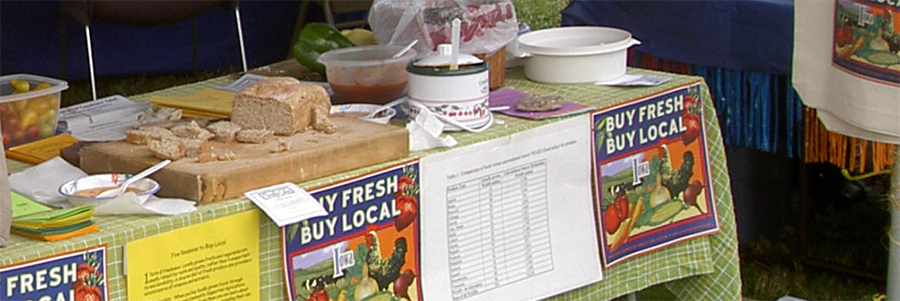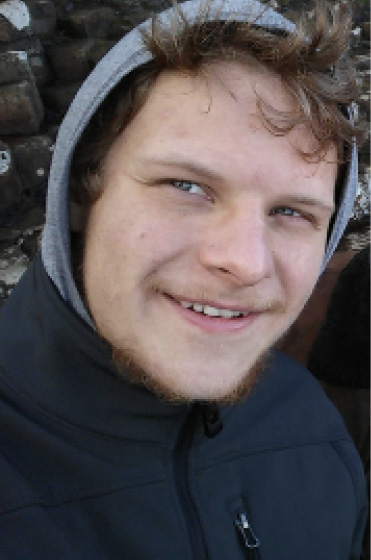I worked just over two months on Mustard Seed Community Farm. as an “agro-ecology intern”. I think the full two months was in order to allow outdoor rural Iowa to deprogram me from the alienated technology-saturated life I had been leading, and to get me acquainted with the more raw conditions of living. The farm’s setting is quite a bit more rural than Grinnell, about twelve miles north of Ames which is a city of about 60,000 (although over half are Iowa State students who migrate with the academic cycle) Both Nate and Alice, who are the primary owners and operators of the farm, have part-time jobs at a cooperative in Ames, and they could drive me to town on weekends. Otherwise, Story City—a town of about 2,000—is only about seven miles away, and I would bike there every weekend with my laptop in my backpack to a cute little independent, goat-themed coffee shop to use the wi-fi and take care of my duties on the cybernetic grid. To provide me with small dosages of internet or calling, my phone could usually pick up 4G on the farm, and there are a couple outlets, though not many, for power.
The immediate location of the farm and its surroundings is, in my view, pretty great. Iowa may not have the best natural landscape, considering that so much of the state is developed, but it does have a monopoly on gorgeous, expansive skies. At times they are golden, other times celestial and bluish purple with elegant clouds seemingly hiding a magical, floating kingdom. Rainbows at times arc above the fields; I once saw a double rainbow over the prairie while a lightning bolt ignited the air. The summer greens clash vibrantly with the blues and golds and the feeling of vastness in open space would be enough to scare the pants off of any agoraphobe. The farm is bordered on three sides by large -scale family farms (which, like most family farms, follow industrial monoculture practices), so you kind of grasp the magnitude of opposition to the sustainable way of life. Mustard Seed is a little ten-acre island in a sea of 1,000-acre operations. But across the gravel road from the farm is some fantastic natural prairie and forest land, owned by a family that allows interns to explore. A large creek flows through it, and as long as you bring long pants to thwart the thistles, you can hike around the bluffs it has carved into the landscape. Several acres of the farm are devoted to prairie restoration and buffering pesticide and fertilizer runoff from the surrounding industrial operations. An artificial pond, recently stocked with fish and surrounded by cattails and other native plants, served as a cooling swimming hole. It occupies the side of the farm primarily devoted to rehabilitation of the land.
The farm itself really got me thinking about sustainability, and I discovered that it had the capacity to alter my way of living. During my internship, we washed our clothes by hand and our showers were outdoors, with solar heated water. There was no indoor plumbing; only an outhouse with a toilet seat constructed over a bucket which we periodically emptied into a designated pit, its contents meant to be buried and, after two years, the land sown with inedible plants like flowers. I shared a small, uninsulated loft with a steel roof and a wooden floor, above an outdoor kitchen where we cooked the majority of our meals. The roof was too low to allow standing up, but the mattress was comfortable. A set of screened windows kept out many insects, but a few managed to breach our living quarters. Toward the end of June and throughout July, the small compartment was as hot as an oven—one day it was 97°F, not that bad until you factor in the 97 percent humidity—so we would seek shelter in the kitchen, where the shade and airflow refreshed the body. I finished several books in the shade, including Moby Dick, which seemed oddly fitting amid the agricultural sea of corn.
The farm made me realize how simple living can be, and how much waste “normal” life generates. The focus I found of the farm was to contribute as little as possible to the injustices of the world while simultaneously maximizing positive contributions.
Our daily work consisted of planting, weeding, harvesting, and organizing, and we watered a large variety of fruits and vegetables. There was a lot of crouching in the dirt, contorting our bodies so as to not trample any fragile plants. Potatoes were a soggy business. In groups, we would spread decaying leaves over hand-made ditches as mulch for moisture retention and nutrients. The slight elevation of the potato patch and the blazing sun kept the soil dry and hard, requiring significant blows with the steel-bladed hoe. Sometimes I got to lead teams on harvest days after I had grown accustomed to the process. I learned such meditative skills as how to mow fallow land with a scythe. Evening and morning chores included doing dishes, helping make meals (with all the organic vegetables), collecting chicken eggs and turning on or off the little electric fence that keeps deer from destroying the farm’s crops. Emptying the latrine bucket was the least pleasant of the chores, but it wasn’t that bad. Aside from small chores, meal prep and cleanup, the actual farm work expectation was thirty hours a week, but I could choose what days I wanted off or distribute them as I wanted.
An average work day for me began around 8 am, though I was usually the last one up. A bell would ring in the kitchen below my bed, and I would groggily throw on work pants, shoes, a shirt, and a straw hat my grandmother had given me. I never had to check the temperature on my phone before getting dressed; I just had to sit up in bed and feel the air around me. I would open the hatch into the open air and descend the ladder, eating a protein bar I kept in a plastic bin. Usually, I would also fill my water bottle from the water jugs (refilled at the cooperative) kept in the Red Shed, a cabin-like shed with a table, chairs, and several bookshelves, a refrigerator, and a lot of storage (food, cooking supplies, tools, seeds, etc.). A couple of interns before me had written a poem on the latrine wall—a sonnet in honor of summer chard. If I had any similar legacy, it would concern the water jugs. I wrote ridiculous labels on them, such as “trombone oil,” “vodka,” and “orphan tears.”
But back to the routine. After getting amply hydrated, I would sit at the outdoor kitchen table with my companions, and we would discuss the day’s duties, take notes, and read the duties neglected in the days before. We would set priorities for the smooth functioning of the farm and then go out into the field. We would do things like plant cantaloupe in measured rows for a couple of hours and then switch to weeding raspberries. The fruits and vegetables we cared for fluctuated daily. The person on lunch duty would begin cooking lunch around 10:30 or 11 am, whether preparing a kale, turnip, and onion quiche, and cooking it in the farm’s solar-heated oven, or preparing a big salad full of garden veggies. We would usually break for lunch around noon. If anything was certain, that there was no shortage of good food on Mustard Seed Farm. We would say a nondenominational prayer to “Mr. E” (mystery) and lively conversation would usually ensue around the kitchen table. We would make jokes, or discuss current events or personal values. After briefly regrouping, we would move on to the next task at hand, whatever it might be until whoever was on dinner duty rang the bell signaling more good food and conversation. In the particularly dry weeks of the summer, we would water the more fragile crops with water pumped up from an underground well. Plants were watered at night to minimize evaporation. I could hear the motorized pump hum whenever I was on dish duty. Work was a great time for either conversation or meditation or a little bit of both. Thinking while accomplishing a task is rewarding. Peter Maurin, the French Catholic social activist who founded the Catholic Worker Movement with Dorothy Day in 1933, wanted to create “agricultural universities” and allow manual workers to be intellectual and intellectuals to work with their hands, to foster growth. That idea strikes me as particularly ingenious because there are certain thought patterns you can only have while you are sweatily engaged in muscling a hand plow through mammoth weeds under an enormous sky. Other brilliant ideas require quiet, restful contemplation.
Before bed I would engage with the latter on most nights, reading political philosophy such as the Slovenian philosopher Slavoj Zizek’s correspondence with the imprisoned Russian feminist activist, Nadya Tolokonnikova, or Noam Chomsky’s short survey, On Anarchism. I would curl up on my bed, inundated by the drone of chirping toads in the nearby pond and read under the weak light of a solar powered lamp. When I would get up in the night to use the latrine or get some water, I would always pause to gaze at the night sky over the shadow-blanketed fields, the only sounds the white noises of insects, toads, and a soft breeze.
As far as less routine activities are concerned, I also did things like teach a class of K-3 students at a local middle school about vegetables and healthy eating. It was fun, but in my experience it’s been hard enough to get my younger siblings to eat their vegetables; getting a classroom full of young children excited about them was that much harder. I had read in National Geographic that astronauts had successfully grown lettuce at the International Space Station that led to several of our classes being space-themed. We pretended turnips and beets were comets and we helped the children make “seed meteors” out of mud, soil, and several different types of vegetable seeds. When the children threw their meteors in their yards, we told them, if enough rain fell, vegetables would sprout up. This was a kid-friendly adaption of the “guerrilla gardening” movement’s “seed bombs" practice, in which a bunch of dedicated food activists and environmentalists would throw their seed bombs into public places like the median strips of highways, parks, and other areas.
I also helped write passages for the farm’s weekly newsletter and did some illustrations. The newsletters were distributed with boxes of food and to volunteer harvesters. From time to time—about every other week— we would have a farm team meeting, either on the farm or at team member’s house in Ames. It was always over a delicious supper with fresh vegetables. We would talk about the things we had to do on the farm, both long term and before the next meeting, such as hosting events, conducting community outreach and public relations, renovating farm buildings, and more. Several times during the season the farm hosted community roundtables and discussions-potluck style (I learned in Moby Dick that Americans have been saying “potluck” at least since 1852). For instance, one farm team member hosted a discussion on class issues, another on Catholicism and environmentalism. I led an on-farm discussion about left-wing ideology after a communal supper. In our free time, a couple of other interns and I went to an anti-Dakota Access pipeline protest, where we and many other demonstrators piled into canoes and protected the water in a small—but not insignificant—way.
As for the people who will definitely be there during anyone’s internship, the farm managers, Nate and Alice, are both very nice. Nate is a bit of a paradox because he is one the chillest easy-going guys you will talk to, but at the same time he has an insane work ethic. He’s always fun to talk to about the world and farming and everything, and he knows a lot about native prairie plants and ecosystems. Alice is always super busy, but she is easy to work with and she keeps the farm functioning smoothly which is very challenging considering the incessant labor demands of low-input, sustainable organic farming. She did some really cool work with the Catholic Worker Movement in Des Moines and elsewhere. She does great things and is very interesting to talk to. Aside from those two it is really variable whom any given intern will be with. The farm team that comes for a couple of hours twice a week for harvests is somewhat stable, all very nice local people or students from Iowa State or an occasional international (I met a Turkish family and a group of African refugees). A very important factor is who interns with you. I was fortunate to be with some really cool people: a fellow Grinnellian who I became great friends with and a neighbor to the farm who came over occasionally who had just recently graduated from college. A 28 year old architect involved with the Catholic Worker Movement in Texas was also super cool. And a Buddhist friend of Alice’s came for two weeks. The mission of the farm, that everyone in the world should have good, healthy food to eat, attracts some really cool people regardless of the year to year uniqueness. Also there is a cat named Shadowbeast who is always a friendly companion.
My time on Mustard Seed Farm showed me ways to sever some of the connections that I have come to see as contributing to global, national, and local problems. In the process, I asserted myself, albeit in a minuscule way, on the side of nonviolent dissent against business as usual. I kept fuel and electricity use to a minimum, and my labor was not alienated from human welfare, because (we produced food for local consumption. I contributed to the restoration of delicate ecological relations that had long since been destroyed by industrial farming.
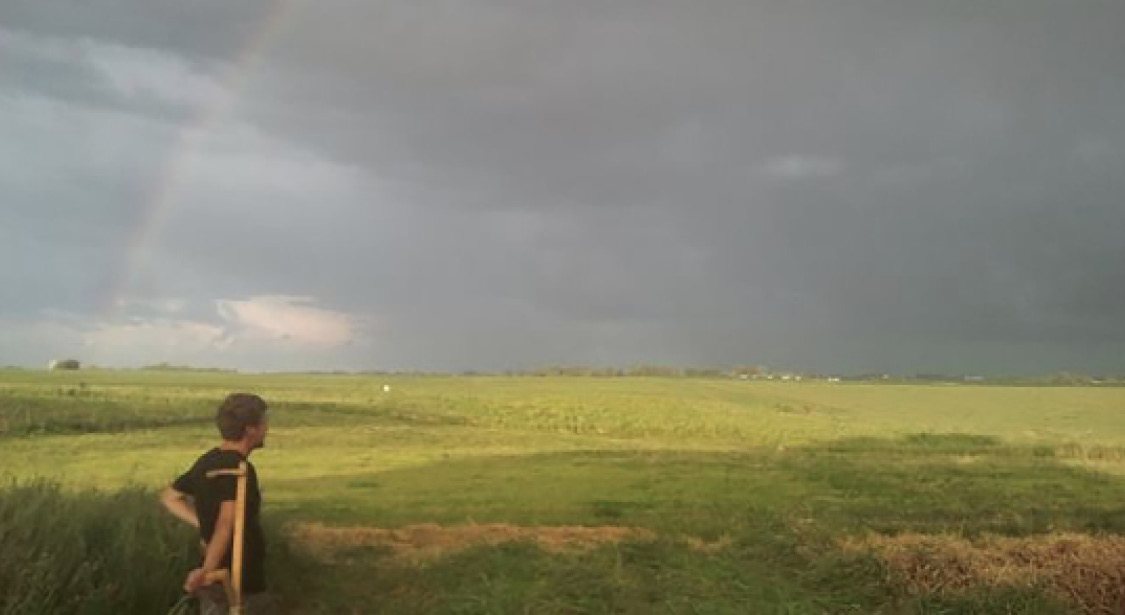
Of course, it’s hard to do any of this perfectly. I drove around with my parents for several days when they visited me from the Twin Cities, looking for fun things to do. Some of the food I ate came from unsustainable sources, but we tried to do our best with what we had, and so reduced our contribution to the problems of the world. We supplemented our farm-grown diets with expired food from the local cooperative; we ate meat, but not daily. And one third of the food we produced was donated to local clinics and food pantries. The rest was either given to workers or paying members in the local area. It seemed to me that we were trying to reduce harm maximally, but at the same time to be of the greatest help. This was in keeping with the inherently political tradition of the Catholic Worker Farm. We operated amid the reality of business as usual at all times.
Mustard Seed Community Farm still must operate in larger society. But it is a beacon of dissent; an example of how we can live differently from the norm, affecting good and reducing harm, instead of merely acting with profit in mind or maintaining power or convenience. Life on the farm was therefore stressful. There were always many tasks at hand that had mostly to be done by hand or with a small arsenal of non-electric tools. Relying on bikes for transportation proved to be near impossible at times, or dangerous. Refraining from the convenience of washing machines and microwaves also had its temporal drawbacks, and the farm’s reliance on a variable volunteer workforce and a handful of seasonal interns kept things interesting. Unavoidably, many of the farm’s tools were produced unsustainably, or in way that were exploitative of workers—but no labor is exploited in the production of the farm’s vegetables, and transgressions against humanity were kept low.
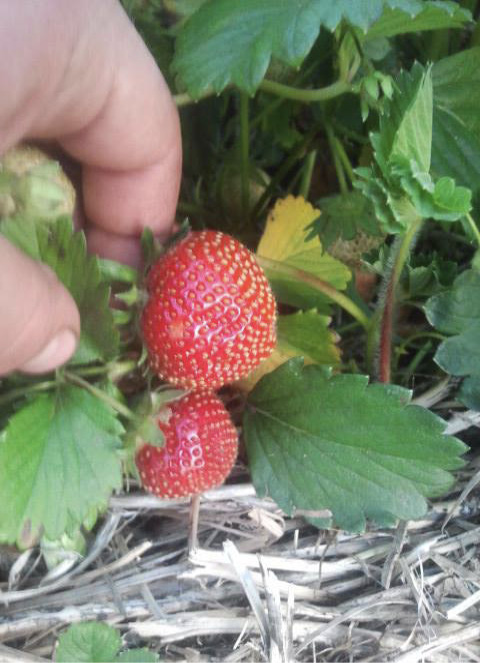
As you can likely see, when you take the concept of interconnection to heart, almost everything bears problematic elements, enough to drive even a diligent do-gooder insane. People are often trapped in terms of the choices are available to them. If you don’t get a job, it’s hard to support your family (especially if you don’t own land or have a benefactor); if you don’t drive to work, you get fired unless you can jump through the hoops and inconveniences of biking. At a certain point I had to recognize the inevitability of imperfection, of some small harm slipping through the cracks of justice- oriented action, but I had to keep it from discouraging me to the point that it kept me from achieving my goal of pushing back at the notion that the status quo can reign indefinitely, that Evil triumphs and Good is pointless. The challenge is to be as conscious as it is possible to be; to try hard to analyze the costs and benefits when we have the choice.*
I would recommend working on Mustard Seed Community Farm! The work I did there was hard, but I grew as a person doing it, and I learned a lot about myself. The lack of air conditioning was a trial at first, but I adjusted, and it felt great being outside all the time. What skill could be more useful, in the face of global warming, than learning how to sustainably grow your own food? Your cooking improves, you make new friends, and you get lots of exercise. I am very happy with my experience.
*This paragraph and the preceding two appeared, with minor changes, in an article I wrote for the Summer of 2016 Our Daily Work issue of The Catholic Worker Farmer while on the farm titled “Political Dissent is Our Daily Work.”
